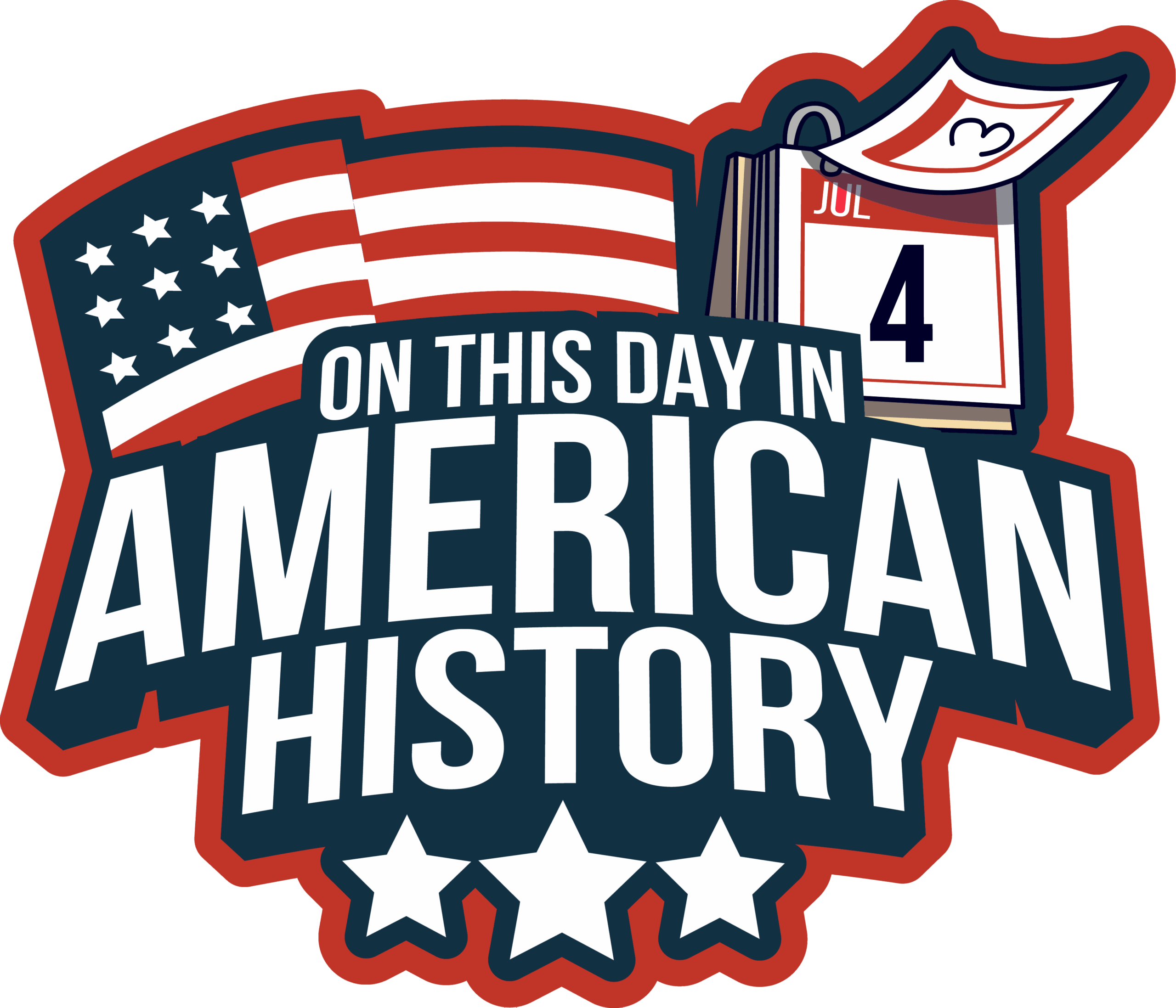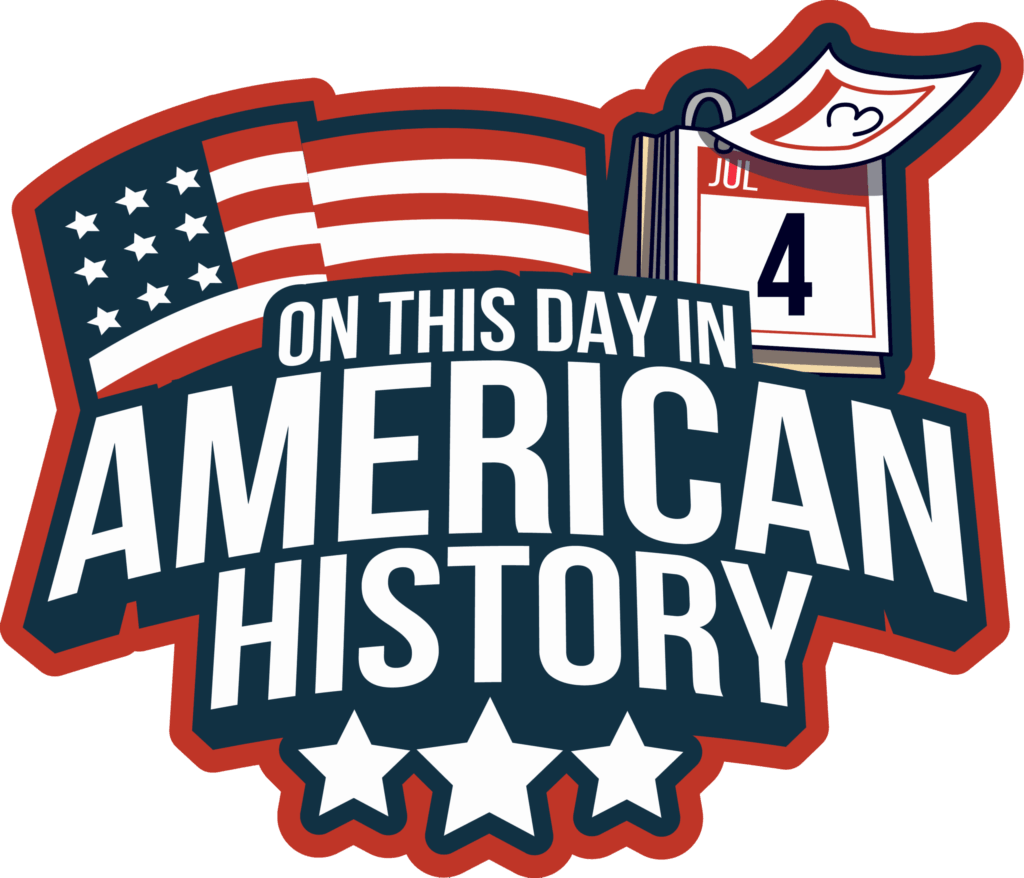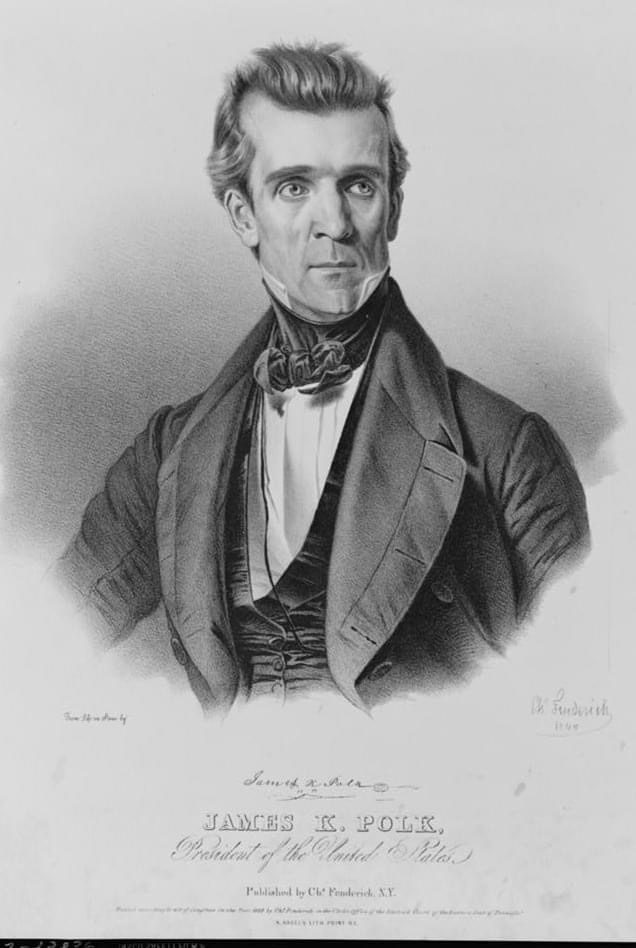
“The preservation of the Constitution from infraction is the President’s highest duty” – 11th President of The United States James Knox Polk during his Fourth State of The Union Address in 1848 James Knox Polk was born on November 2, 1795 in Pineville, North Carolina. Image via Library of Congress, no known restrictions
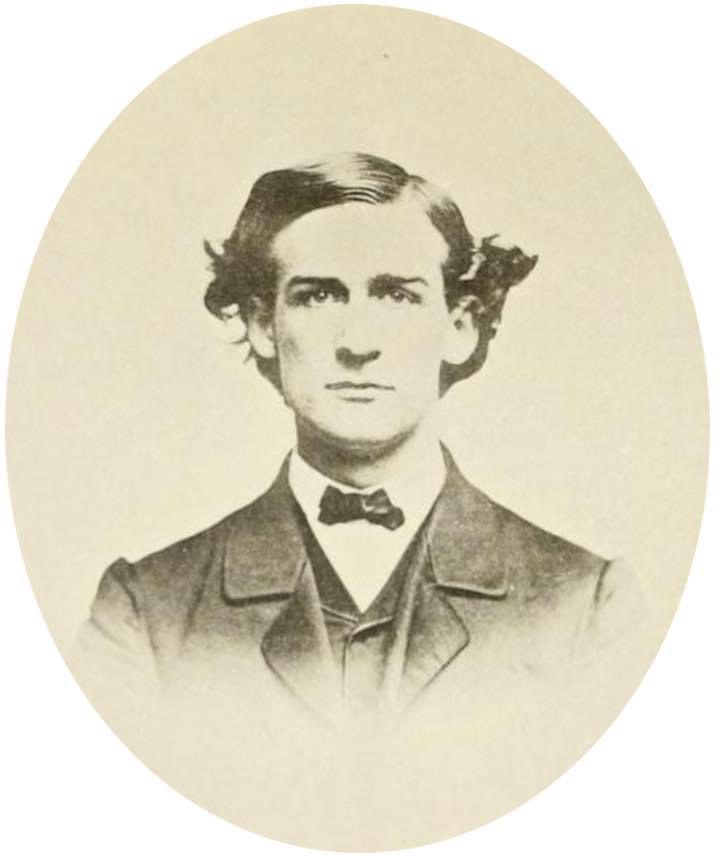
On November 2, 1844 American Inventor John J. Loud was born in Weymouth, Massachusetts. Just a few days before his 44th birthday, Loud received a patent for what is believed to be the first ball point pen. Image: John J. Loud in 1866 via Wikimedia Commons, public domain
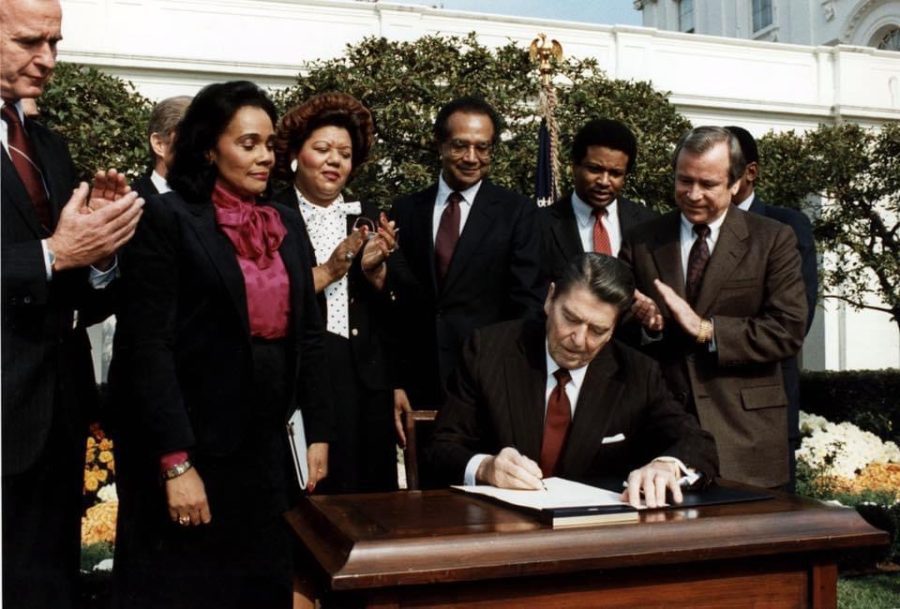
President Ronald Reagan signing the bill on November 2, 1983 commemorating Martin Luther King Jr.’s birthday as a national holiday. via Wikimedia Commons, public domain
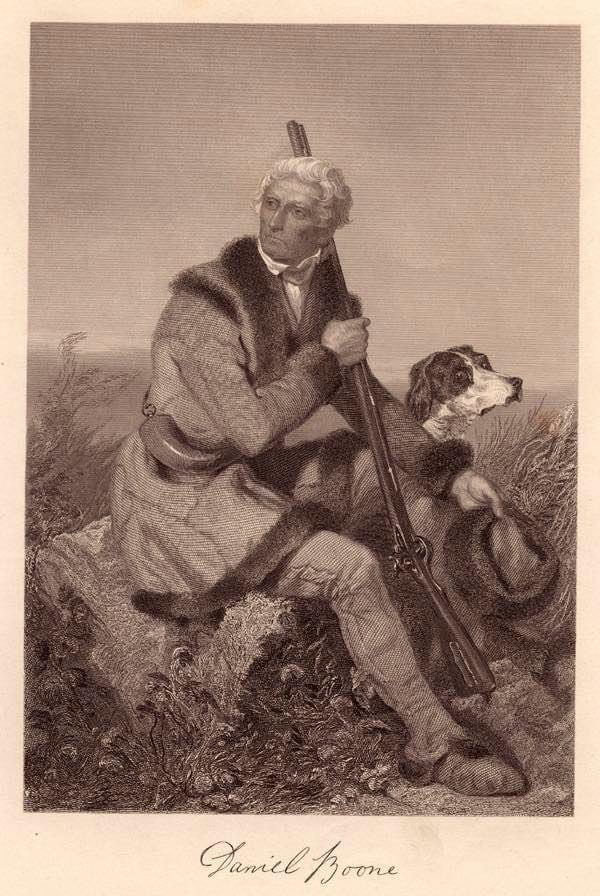
Exceptional Veterans in American History Daniel Boone “Few men of such humble pretensions occupy so large a space in history, as Daniel Boone. His heroism as an explorer, pioneer, settler, and patriotic defender of the soil he had won by his courage in the path of the discoverer, partakes so largely of the spirit of chivalry and true romance, that we incontinently look upon him with a sentiment of hero-worship. Daniel Boone was born in Berks county, Pennsylvania, (November 2nd) in 1734. His parents were from Bradninch, near Exeter, England; and while Daniel was a small boy, they left Pennsylvania, and settled near the banks of the Yadkin, in North Carolina. At that time the region beyond the Blue Ridge was an unknown wilderness to the white people, for none had ventured thither, as far as is known, until about the year 1750. It was almost twenty years later than this, when Boone was approaching the prime of life, that he first penetrated the great Valley of the Mississippi, in company with others. He had already, as a bold hunter, been within the eastern verge of the present Kentucky, but now he took a long “hunt,” of about three years. He had made himself familiar with the wilderness; and, in 1773, in company with other families, he started with his own to make a settlement on the Kain-tuck-ee river. The hostile Indians compelled them to fall back, and Boone resided on the Clerich river until 1775, when he went forward and planted the settlement of Boonesborough, in the present Madison county, Kentucky. There he built a log fort, and in the course of three or four years, several other settlers joined him. His wife and daughters were the first white women ever seen upon the banks of the Kentucky river. He became a great annoyance to the Indians; and while at the Blue Licks, on the Licking river, in February, 1778, engaged with others in making salt, he was captured by some Shawnee warriors from the Ohio country, and taken to Chillicothe. The Indians became attached to him, and he was adopted into a family as a son. A ransom of five hundred dollars was offered for him, but the Indians refused it. He at length escaped (in July following his capture) when he ascertained that a large body of Indians were preparing to march against Boonesborough. They attacked that station three times before the middle of September, but were repulsed. During Boone’s captivity, his wife and children had returned to the house of her father, on the Yadkln, where the pioneer visited them in 1779, and remained with them for many months. He returned to Kentucky, in 1780, with his family, and assisted Colonel Clarke in his operations against the Indians in the Illinois country. He was a very active partisan in that far-off region beyond the Alleghanies until the close of the war. From that time, until 1798, he resided alternately in Kentucky and in Western Virginia. He had seen that ”wilderness blossom as the rose;” and in less than twenty years from the time when he built his fort at Boonesborough, he saw Kentucky honored as a sovereign State of an independent union of republics. Yet he was doomed to lose all personal advantages in the growth of the new State. Neglecting to comply with new land laws, of whose details he was probably ignorant, he lost his title to lands which he had discovered and subdued; and the region which so recently seemed all his own, now filled with half a million of his fellow-citizens, afforded him no home in fee simple! Indignant at what he considered base ingratitude, he shouldered his rifle, left Kentucky forever, and, with some followers, plunged into the interminable forests of the present Missouri, beyond the Mississippi river. They settled upon the Little Osage, in 1799, and the following year, Boone and his companions explored the head waters of the Arkansas. A long time afterward, when he was almost eighty years of age, he trapped beavers on the Great Osage. Soon after his return from that “hunt,” he sent a memorial to the legislature of Kentucky, setting forth that he owned not an acre of land on the face of the earth, had nowhere to lay his head, and asked a confirmation of title to lands given him in Louisiana, by the Spanish governor, before that territory was ceded to the United States. Congress secured two thousand acres to him, and so his old age was made comparatively happy by the prospect of a grave in the bosom of his own soil. The brave old hero died in Missouri, on the 26th of September, 1820, at the age of almost ninety years. His remains now lie beside those of his wife, in a cemetery at Frankfort, Kentucky.” From: Eminent Americans by Benson John Lossing, published in 1881 https://archive.org/details/eminentamerica00lossiala/page/192 Source says not in copyright Image: Engraving of Daniel Boone via Wikimedia Commons, public domain
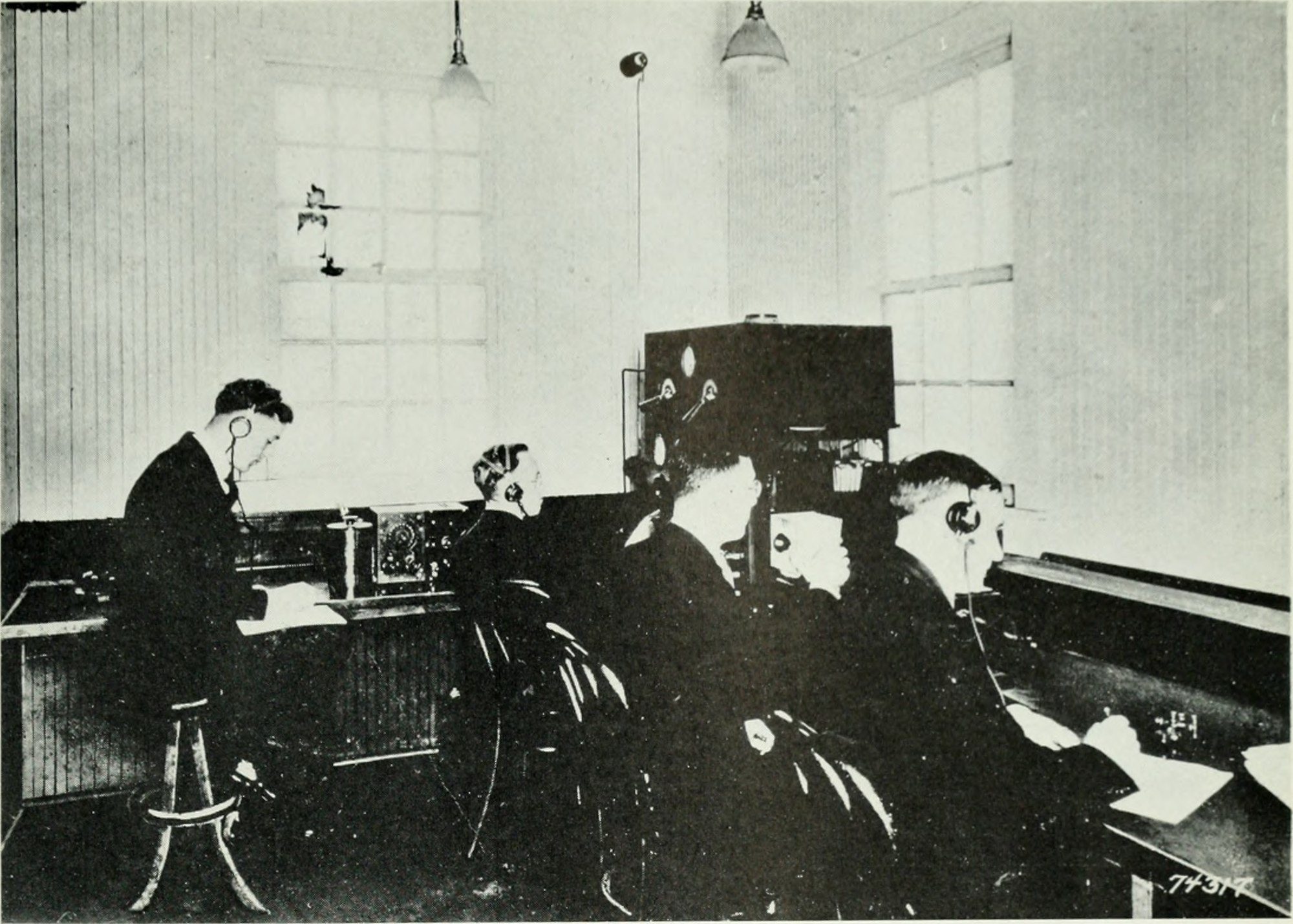
Historic scene at the original transmitter of KDKA in Pittsburgh on the occasion of its first broadcast, the coverage of election results on November 2, 1920. Its regarded as the first commercial radio broadcast. Warren G. Harding, on his 55th birthday, defeated James M. Cox to become the 29th President of The United States. Image via Wikimedia Commons, no known restrictions

A General Patton tank exiting the USS LST-914 during the invasion of Wonsan, Korea November 2, 1950 Image via Wikimedia Commons, no known restrictions
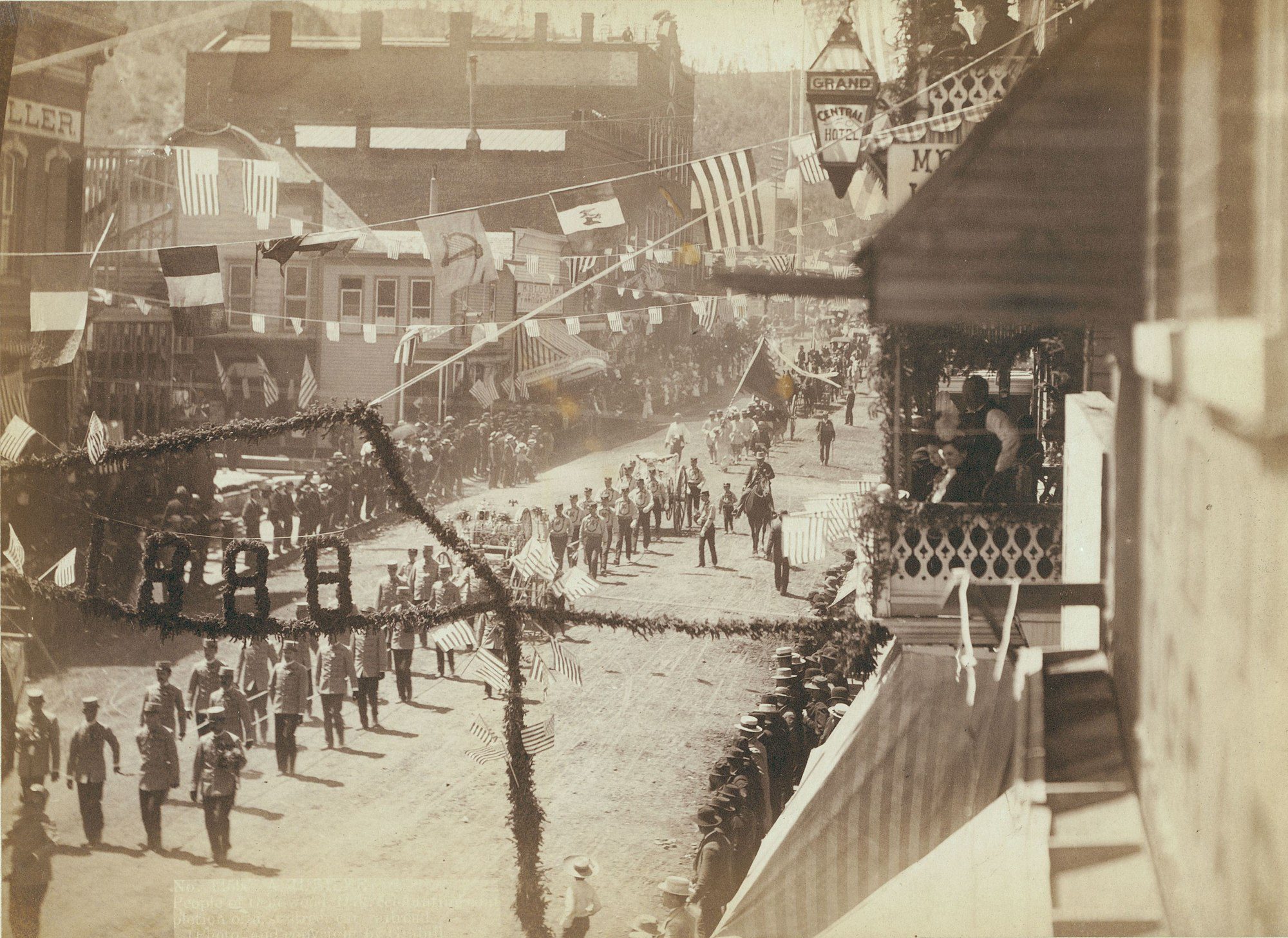
People of Deadwood celebrating the completion of a stretch of railroad in the Dakota Territory in 1888. The following year on November 2, 1889, North Dakota and South Dakota became the 39th & 40th states. Image via Wikimedia Commons, public domain
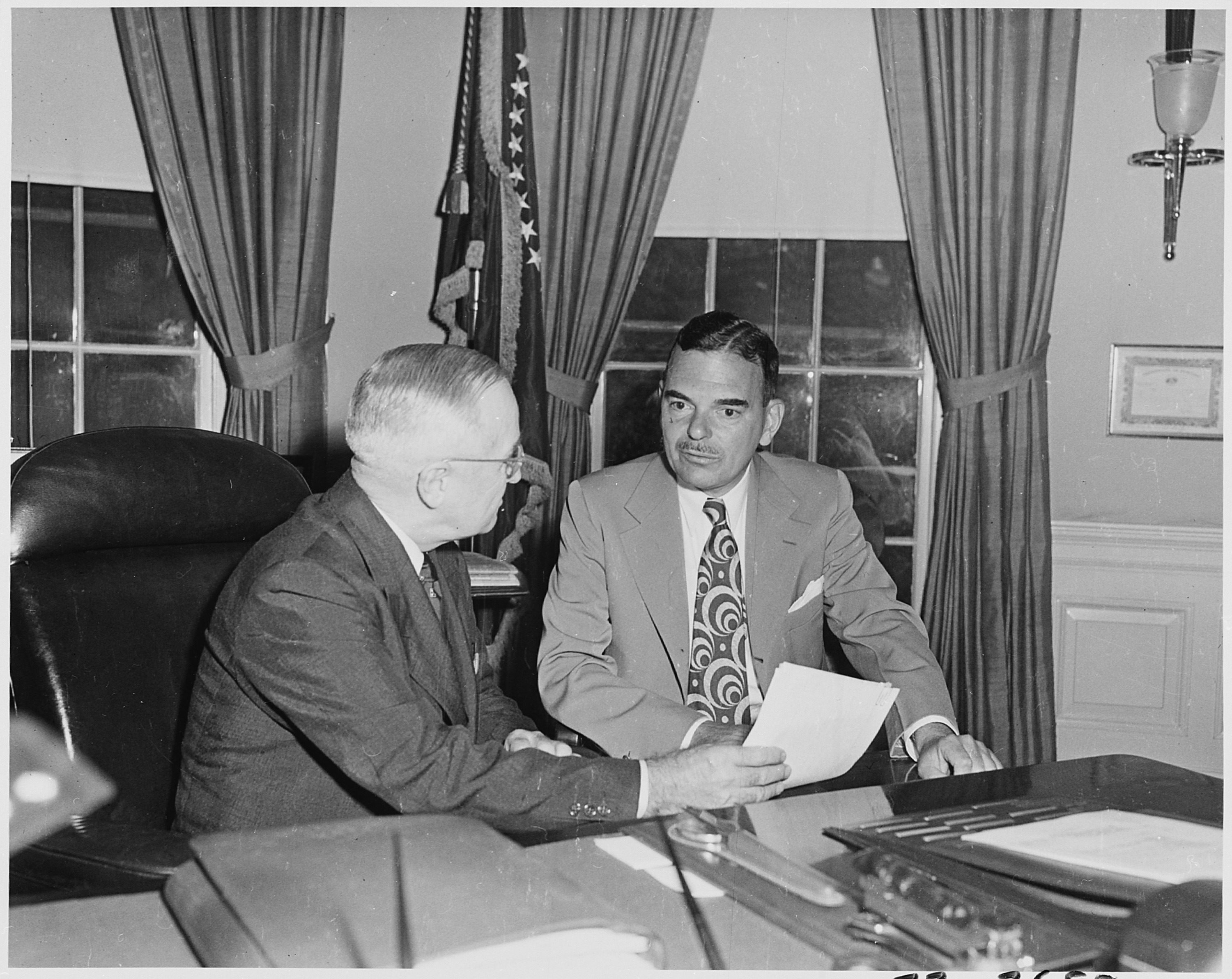
Photograph from 1951 of President Truman in the Oval Office conferring with Governor Thomas E. Dewey of New York, the man Truman defeated in the presidential election on the evening of November 2, 1948. Image via Wikimedia Commons, public domain
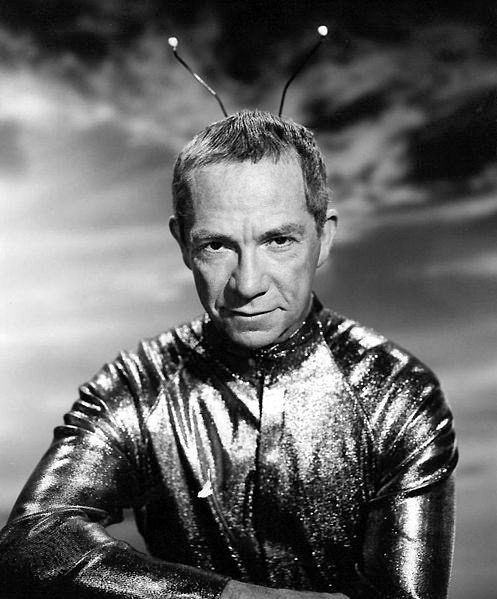
Born November 2, 1914 Ray Walston’s career as an actor took him from Broadway to films to television. He’s shown here as Uncle Martin in “My Favorite Martian” where he co-starred with Bill Bixby. He also played the demanding but caring teacher Mr. Hand in “Fast Times at Ridgemont High.” Image via Wikimedia Commons, no known copyright, public domain in the US


